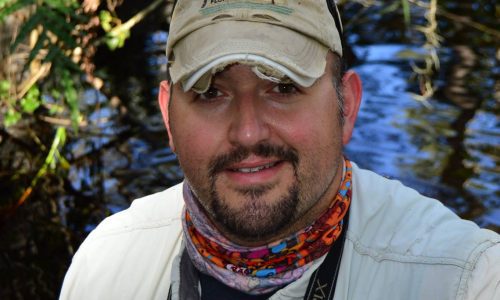To further a commitment to regional water quality and Everglades restoration through a unified front, SCCF (Sanibel-Captiva Conservation Foundation) and the Conservancy of Southwest Florida have partnered to hire a hydrological modeler.
“We better fulfill our west coast mission by pooling our resources and streamlining our efforts,” said SCCF CEO Ryan Orgera, Ph.D. “Doing so, we were able to hire a highly qualified data analyst who will move us more efficiently towards water quality solutions.”
On March 16, Paul Julian, Ph.D., will begin working as a hydrological modeler for SCCF and the Conservancy of Southwest Florida. The goal of this partnership is to address an important need for modeling expertise and data analysis in Southwest Florida. Work products will be shared between the non-profits, who have led conservation efforts in Lee and Collier Counties for more than five decades.
For the past ten years, Julian worked as the Everglades Technical Lead for the Florida Department of Environment Protection (FDEP). In that role, he gained deep understanding of the dynamic Greater Everglades Ecosystem by performing water quality compliance calculations, supporting federal and state restoration planning efforts, developing water quality nutrient models, and mining and analysis of environmental data.
“We are very pleased to be able to bring someone of Paul’s caliber to our combined team, and to be working even closer with our partners at SCCF to advance science-based water quality solutions for our region,” said Conservancy CEO & President Rob Moher. “Paul’s deep experience as one of the lead technical experts on Everglades Restoration combined with his passion for conservation will strengthen our shared efforts to protect water resources”.
Julian has an M.S. in Environmental Science from FGCU, and a Ph.D. in Soil and Water Science from the University of Florida, which he earned while employed with FDEP. He is infatuated by wetlands and at his website, swampthingecology.org, he describes how his love of science and the unique ecosystems of South Florida overlap.
In his new role as hydrological modeler, he will use mechanistic and empirical models to synthesize environmental data and evaluate the effects of Everglades Restoration projects, Army Corps of Engineers water management operations, impacts of regional and local development, sea-level rise, and other drivers on the hydrologic, water quality, and ecological integrity of Southwest Florida’s watersheds, including but not limited to the Caloosahatchee and Lake Okeechobee.
“I’m really excited to join SCCF and the Conservancy and to provide data-driven solutions to improving and understanding regional water quality and ecosystem function,” said Julian. “As part of this data-driven perspective, my goal is to synthesize existing data and, if needed, identify areas where more data is needed to aid in landscape and ecosystem level assessments to inform restoration activities and policy directives.”
Working under the direction of SCCF Environmental Policy Director James Evans and Marisa Carrozzo, Everglades and Water Policy Manager with the Conservancy, one of Julian’s initial projects will be focused on the development of U.S. Army Corps of Engineers (USACE) Lake Okeechobee System Operating Manual (LOSOM). LOSOM will take the place of the current Lake Okeechobee Regulation Schedule, providing guidance to the Army Corps of Engineers on freshwater releases from Lake Okeechobee, and is scheduled to be completed in 2022 coinciding with the completion of Herbert Hoover Dike rehabilitation.
“We are very excited to have Paul join our combined team. He brings a great deal of technical expertise and experience and fills an important need for our organizations,” said Evans. “His modeling expertise will help guide the development of the Lake Okeechobee System Operating Manual— a critical tool for addressing the damaging discharges from Lake Okeechobee and helping restore our coastal ecosystems.”
From a Greater Everglades perspective, the Conservancy’s Everglades & Water Policy Manager Marisa Carrozzo sees great value in having Julian contribute to advocacy efforts after having spent time within the state regulatory agency and working on joint federal and state restoration projects.
“Everglades projects and the water quality restoration framework in Florida are integral to our region’s future sustainability and quality of life,” said Carrozzo. “Paul’s broad experience in evaluating restoration projects and water quality data will be invaluable for our cross-organizational team to advance our collective ecosystem priorities across Southwest Florida and the Greater Everglades.”
Julian leaves his post at FDEP on March 12 and begins his new role with SCCF and the Conservancy on March 16.
Learn more about the Sanibel-Captiva Conservation Foundation (SCCF)’s work at sccf.org and the Conservancy of Southwest Florida’s work at Conservancy.org.








